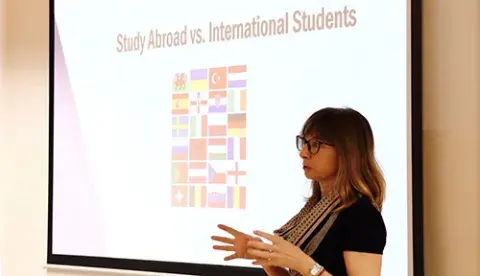
Months into the COVID-19 outbreak, health care workers continue to place their own lives at risk while enduring more stressful conditions than usual and working longer hours.
Months into the COVID-19 outbreak, health care workers continue to place their own lives at risk while enduring more stressful conditions than usual and working longer hours. To support these true heroes, our University Counselor and Accessibility Coordinator, Corbin Moro, is volunteering to provide free hotline therapy and email support.
Health care workers are dealing with a situation that most of them have never encountered before. They must implement new protocols and maintain a high standard of care while managing the stress that results from an increased death rate among their patients. They face strong emotions and fatigue, while risking their own health. They also fear bringing the virus home and infecting their families.
Since virus patients must be isolated, they cannot receive any visits from family or friends. Doctors and nurses become the only contact patients have with other people. For these medical professionals, this unusual situation adds the burden of having to regularly update patients’ families via telephone. It all adds up to a new experience for many caregivers, and Counselor Moro feels compelled to help where she can.
“They feel acutely the need to connect and be there for their patients who can’t receive visitors. At the same time, they are extremely busy and overworked, and can’t dedicate as much time as they would like to each patient. My colleagues and I see a real need to do our part to help out our health care workers, as well as the people in our community.”
Although support hotlines were originally put in place just for health care workers, anyone could be suffering from the pervasive effects of COVID-19. Therefore, counselors from the Associazione Ticinese di Psicologi (ATP) and the Società Ticinese di Psichiatria e Psicoterapia (STTPP) have decided to make themselves available to anyone who wants to discuss their feelings, their challenges, and talk through possible solutions. Sometimes, all a caller needs is a sympathetic ear so they don’t take all of their stress home with them at the end of the day.
Things may feel chaotic and uncertain right now, but Counselor Moro wants us to know that there are things that we can do to help ourselves and others. Isolation and hand-washing do help reduce the spread of the virus which, in turn, makes life a little easier for our caregivers. It may also result in less infection overall. But how do we regain our sense of order and stability?
“Maintaining a daily routine is helpful during this adjustment period. It is also important to come up with alternatives to the normal things that we would do to relax or unwind. While you can’t go to the gym to work out, you can work out from home for example. Personally, I connect virtually with a group of friends every morning at 10. We decide which YouTube workout video to watch together and we work out with each other, each from the comfort of our homes. It is important to reach out to friends and family and to remain connected, even if only by phone.”
To schedule an appointment with Corbin Moro, you can write to her at counselor@fus.edu. For office hours and other contact info, go to https://www.fus.edu/services/health.

